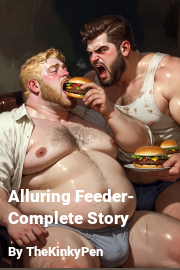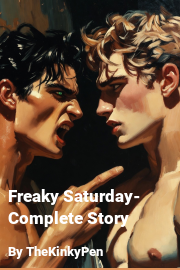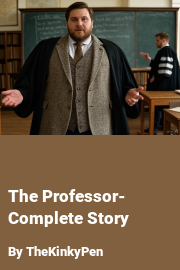Chapter 1
The light of dawn poured through the mullioned windows of the Princess's solar, gilding the chamber in hues of fire and rose. Princess Luscila Pendragon stood at the center of it all, bathed in that glow as though the sun itself sought to worship her. Her hair fell in golden curls down her shoulders and back, every lock kissed with the brilliance of fine-spun gold. Her emerald eyes glittered sharp as cut jewels, keen and unblinking, and her beauty seemed so deliberate, so crafted by divine design, that her ladies-in-waiting often whispered she could not be wholly mortal. She wore a gown of green silk sewn with threads of silver and clasped at the waist with a girdle studded in small emeralds. The Pendragon crest-dragon rampant-was embroidered upon her breast in crimson, fierce against the softer hues of her attire.Her ladies clustered about her, soft voices trading half-prayers, half-gossip. They had heard the cries from the Queen's birthing chamber hours before, heard the footsteps of physicians, the commands of the midwives, the muted groans and gasps of a woman in torment. A birth was always dangerous, even for a queen, and speculation hung heavy in the air like incense smoke.
But Luscila, daughter of kings, heir apparent for eighteen years, smiled with an air of serene command. She raised a pale, slender hand, adorned with rings, and silenced them as surely as if she had pressed her palm against their lips.
"Do not let foolish hopes or darker fears take root in you," she said. Her voice was rich, low, confident, each syllable rolling like velvet and steel together. "My mother has borne my father's children for near two decades and has given him daughters, only daughters. It will not be now, after so many years, that she produces a son. The gods have shown their will clearly enough. I was born first. I was prepared. I am the heir. The crown has always been mine, and it shall remain mine."
One of her companions, timid Elira with downcast eyes, ventured in a whisper, "But, Highness... sometimes the gods-"
"The gods are not capricious," Luscila cut her off sharply, though her smile did not falter. "They are deliberate. They know their instruments. My mother was never meant to give the kingdom a son. If she had been, she would have done so years ago, when her womb was still young and strong. She has daughters, and I am the first and finest of them. That is all there is to say."
The words rang final, heavy as law, and the ladies fell silent.
It was then that the knock came at the solar door. The chambermaid entered, cheeks pale, apron smeared with sweat and blood. She dropped into a trembling curtsey.
"Your Highness," she stammered. "The queen has been delivered... His Majesty commands your presence in the birthing chamber at once."
For an instant the room seemed to grow colder. Luscila's smile did not break, but the grip she kept upon her gown's folds tightened.
"Very well," she said coolly. "I shall attend him."
The birthing chamber stank of heat, iron, and wet linens. Tapestries had been torn down for air; basins of bloodied water were scattered across the rushes. The queen lay sunken into the mountain of pillows, her once-radiant face drawn and pale with exhaustion. Yet in her eyes glimmered a strange, smug light.
And at the foot of the bed stood King Armand Pendragon, broad shoulders squared, beard wet with tears. In his mighty hands he cradled two small bundles wrapped in blue cloth. His smile was a sunrise, his laughter the roar of a lion.
"Two!" he bellowed to the gathered courtiers, midwives, and noble kin. "Two sons! The gods are good! The line is secured-twice over!"
The chamber erupted into applause and exclamations. Luscila's sisters rushed forward in a flurry of satin and lace, squealing with delight, kneeling to peek at the red, mewling faces of the babes. Their laughter rang, high and joyous.
But for Luscila, the sound was drowned by the hammer of her heartbeat. She did not move. She stared at her father's radiant face, at the blue of the swaddling, at her mother's faint, victorious smile. Something within her chest crumpled. Something vast and cold and merciless wrapped around her heart.
Her eyes met her mother's. And there she found no apology, no pity-only triumph.
Betrayal.
Days later the castle bells tolled for the christening, their peals bright and endless. The great hall bustled with activity, courtiers bedecked in finery, priests rehearsing prayers, servants rushing with garlands and incense burners.
Before the ceremony, however, the king sent for Luscila.
She entered his solar with head held high, her emerald eyes hard. King Armand sat behind his oaken desk, scrolls and ledgers spread before him. His expression was stern but not unkind.
"You sulk," he began without lifting his gaze. "You hide in corners and mutter to your maids. Do you think I do not see?"
"I do not sulk," she replied coldly. "I mourn. I mourn for what I have lost."
He looked up then, and the weight of his stare struck like a mailed fist. "You lost nothing. The kingdom gained. Sons, heirs. Your duty is lighter now, not heavier."
"My duty was the crown," she snapped. "I was your heir. I studied, I bled, I bent myself to every tutor, every master, so that I might be the queen this realm deserved. And now, because of two squalling babes, I am to be cast aside. Do not insult me with talk of lightened burdens."
"You speak as though you were wronged." His voice was low, dangerous. "The gods sent me sons. Do you curse them for it?"
"I curse my fate," she shot back. "I curse that a woman's worth is measured in wombs and husbands, not in mind or will. I curse that I must bow to infants."
"Enough!" His palm struck the desk with a crack. "You forget yourself, Luscila. You forget who I am."
"I remember," she whispered fiercely. "Too well."
For a long moment, silence stretched between them, thick as smoke. Then King Armand leaned back, exhaling slow.
"Three thrones seek alliance with ours," he said. "Three princes, each heir to his father. You shall wed one. It will strengthen us. You will choose."
Her hands trembled, but her voice was steel. "Then I choose wealth. The Prince of Dorlath. Let me have his riches if I cannot have your throne."
"So be it." He slid a parchment across the desk. "The King of Dorlath has written, asking for your hand. Sit. Help me write the answer. Let the words be yours, though the command is mine."
She sat, tears burning her eyes as she penned her fate in ink.
Her ladies wept with her as they dressed her for the christening, fastening jewels into her hair, pulling silks tight around her frame. She stood rigid, regal even in grief, her beauty sharper for her fury.
A knock disturbed them. The royal butler entered, bowing perfunctorily. "I have come for the Heir's Crown," he announced.
Luscila whirled on him. "It is mine!" she cried. "That circlet was forged for me, promised to me. You cannot-"
"It belongs now to Prince Edmure," the man interrupted calmly. He lifted the circlet from its cushion without flinching, ignoring her trembling rage, and departed with measured steps.
Her scream of fury shook the chamber.
The cathedral gleamed with colored light as the Bishop anointed the infants. Duke Otto, her father's brother, stepped forward as godfather, solemn and grave, while Duchess Ursula cradled the babes like a proud matron. Blessings rose like smoke to the rafters, holy words binding the princes to God's light.
At the banquet after, music soared, wine flowed, and laughter echoed. Yet to Luscila, it was hollow noise.
Her cousin Serwyn, Otto's heir, leaned across the table with a smirk. "Poor Luscila," he sneered. "From crown to pawn in the space of a week. Tell me, cousin, shall we practice curtsies together, for soon you'll be bowing to babes?"
Laughter rippled. Her cheeks burned.
But Otto slammed his fist to silence it. "Enough, boy. Apologize to your cousin."
Serwyn muttered, chastened.
The Duke turned to her then, his eyes gentle. "Do not measure yourself by crowns and titles, child. The world is long, and its paths twist strangely. You may yet be queen, in name or in deed. And even if not-you are still Luscila, still Pendragon. Never let them tell you less."
Her throat closed with tears. She leaned into his embrace, clinging to his strength. For the first time since the twins' birth, she believed she might endure.
The great hall trembled with laughter, goblets raised high, the harps thrumming, but Princess Luscila no longer heard the merriment. Her uncle's arm was still around her shoulders, steady and warm, his presence like an anchor holding her steady against the tides of humiliation. The scent of roasted meats, the clamor of servants, the drone of prayers for the newborn princes-it all blurred, receded.
She turned her face to him, emerald eyes flashing wet with tears and rage. "Uncle," she whispered, low enough that only he could hear. "Do you know what it feels like to be robbed of the very breath in your chest? To have the ground beneath you vanish in an instant? I was raised to rule. I bled for it. Every lesson, every day, every expectation-my life was forged for the crown. And now, because my mother's womb chose to stir again, I am cast aside as if I were nothing."
Otto Pendragon studied her, his stern features softened in the glow of torchlight. "You are not nothing, Luscila. You are still my brother's daughter, still Pendragon blood, still a woman of rare wit and strength. These halls remember who you are, even if fate changes its course."
Her voice sharpened, though it trembled with pain. "I look at her, Uncle. I look at my mother, lying smug upon her bed, smiling though she was half-dead with the effort. She betrayed me. She looked at me as though she had won. How am I to forgive that?"
His hand tightened gently on her arm. "She is your mother, child. A queen does what she must, as does a woman. She sought to give your father sons, as all queens are expected. She did not plot your downfall, however it feels. You must not let bitterness consume you. It will eat away at the soul."
Her lips curved in a bitter smile. "Perhaps my soul was not meant to be sweet."
He sighed, but he did not scold. "Ambition is not a sin, Luscila. But wield it with wisdom. You have not lost everything, only changed the shape of what lies ahead. There is power still to be claimed, though you must claim it differently now. And you-" he tapped her chin gently, "-you are clever enough to see that truth."
She pressed her face to his shoulder, swallowing tears. "I want to believe you, Uncle. But the fire in me does not quiet."
"Good," he said softly. "Let it burn. But let it guide you, not destroy you."
That night, while the feast raged on, Luscila slipped away. She traded the riot of the banquet hall for the hushed sanctum of the royal library. Here, under vaulted ceilings heavy with dust and candlelight, she sought her solace not in prayer but in parchment.
Scrolls and ledgers soon towered before her: trade routes inked in spidery hand, maps charting the flow of gold from Dorlath's mountains, records of harvests, naval shipments, treaties penned with the Free Cities. She devoured each with a hunger fiercer than any appetite at the feast. She traced the veins of wealth that lined her future husband's realm, learned the customs of their court, their laws, their oaths.
She lingered longest over the annals of war. King Harwyn of Dorlath, her future father-in-law, had carved his name into history with blood and iron, his victories sung from coast to coast. She studied every campaign, every maneuver, memorizing the names of generals, the strategies that had broken enemies thrice their strength.
But knowledge of paper was not enough. She dispatched her most trusted ladies and spies in secrecy, their instructions precise as a surgeon's cut. Learn what the scribes could not tell her: the truth of her betrothed.
And they returned with tales of a man who seemed contradiction made flesh.
Prince Alistair of Dorlath: freakishly tall, a giant among men. Handsome as carved marble, his face marked by the harsh beauty of black hair and eyes like winter skies. His body was thick with muscle, his skin pale as moonlight, his chest and limbs thickly furred. Yet, for all his might and beauty, he was no boisterous knight. He was painfully shy, they whispered. He sought solitude in the library or the training yard, preferring the company of steel and scrolls to courtiers. A man who did not strut but lingered in shadows, who rarely raised his voice save in the clash of swords.
Luscila lingered over these reports for hours, her candle burning low. A strange heat stirred in her as she read: part curiosity, part calculation, part something darker, unnamed.
Time flowed swiftly in the weeks that followed. Her tongue grew nimble in the language of Dorlath, her voice curling easily around its sharp consonants and broad vowels. She recited verses from their poets until she knew them by heart. She studied the histories until their kings were as familiar to her as her own forebears. She could speak of their feasts, their crops, their rites of mourning, their bargains with the Free Cities. She would not go into her marriage blind. She would go armed with knowledge sharper than steel.
And yet, in the quiet of her heart, she returned to the nursery.
The princes, Edmure and Leopold, grew stronger with each passing day, their cries shrill but their small fists clutching with surprising strength. One afternoon, Luscila entered softly, the scent of milk and honey clinging to the air. The nursemaids bowed low, placing Edmure in her arms.
She held him, small and warm against her breast. His eyes blinked up at her, unfocused, yet piercing her all the same. She traced a finger along his cheek, and something stirred in her chest-resentment, yes, but also something softer.
Her mother's voice, weak but clear, drew her gaze. Queen Amara reclined nearby, pale yet regal, her hands folded.
"You came," the queen whispered.
"I had to see them," Luscila answered. Her voice was quiet, stripped of its usual armor. "They are my brothers."
"And your rivals," her mother said, not unkindly.
Luscila looked down at the child. "Perhaps. But they are also blood. And blood binds more fiercely than crowns."
The queen smiled faintly, though her eyes brimmed with weariness. "You will be a queen in your own right one day, Luscila. If not here, then elsewhere. Do not let bitterness rot you. Let it shape you."
For the first time since the birth, Luscila felt her anger falter. She kissed Edmure's brow, then reached for Leopold as well. Both brothers, both fates entwined with hers in ways she could not yet fathom.
She looked at her mother then, eyes bright, and whispered, "I won't say I am over the loss of my inheritance. Not yet. But perhaps I understand you. You did your duty after all."
Queen Amara's eyes closed, but her lips curved into a tired smile.
And Luscila sat between cradle and queen, the fire of her ambition tempered but never extinguished.
Fantasy
Mutual gaining
Helpless/Weak/Dumpling
Feeding/Stuffing
Paradise/Holiday/Luxury
Princess/Prince
Sexual acts/Love making
Addictive
Dominant
Helpless
Indulgent
Lazy
Spoilt
Male
Straight
Immobility
Wife/Husband/Girlfriend
X-rated
3 chapters, created 5 months
, updated 5 months
14
2
3388











Comments